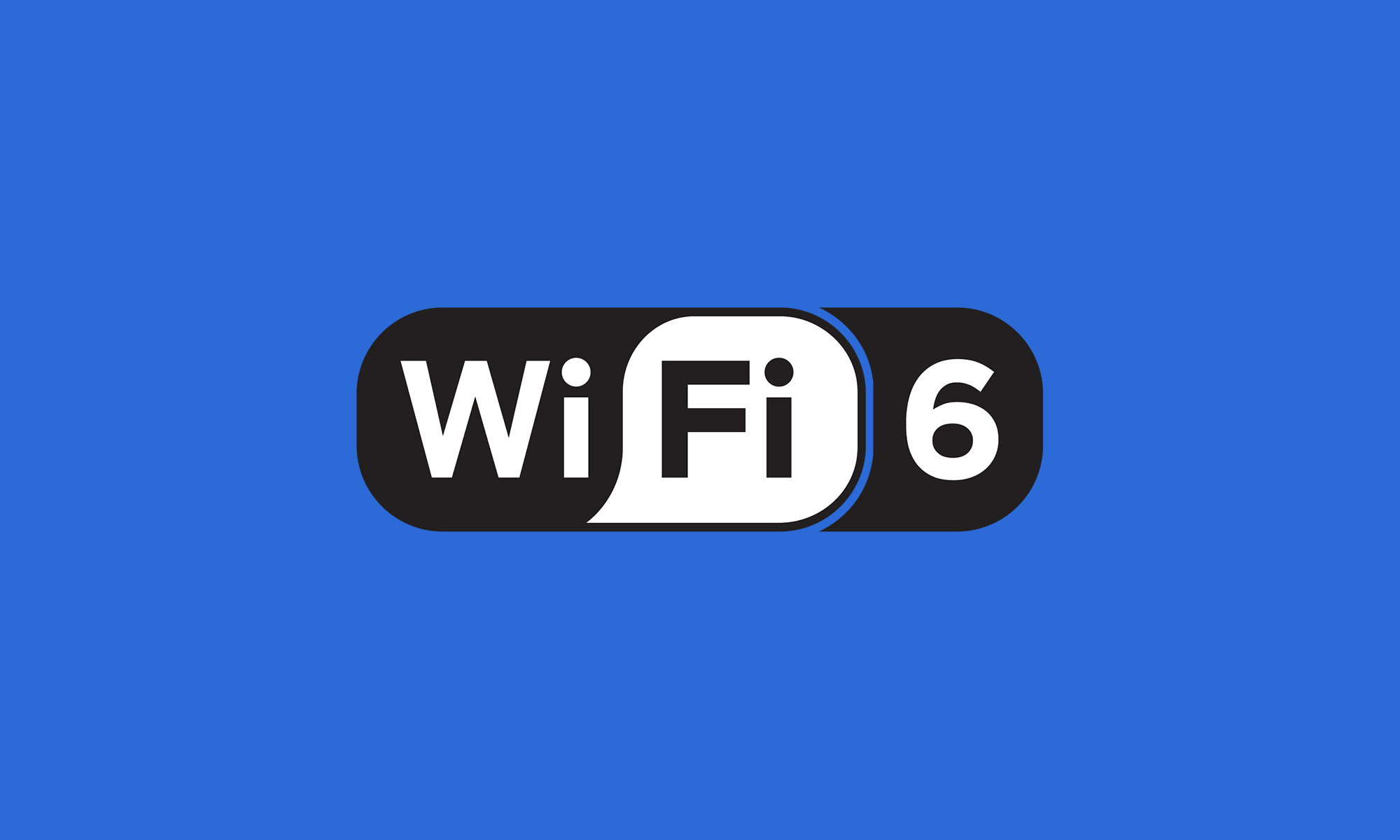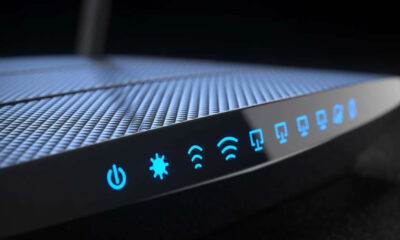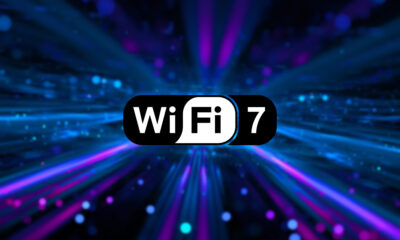News
Wi-Fi 6: Everything You Need To Know
With Wi-Fi 6, you’ll be able to enjoy faster connection speeds, greater capacity, and improved power efficiency.

The speed of the average Wi-Fi connection has increased considerably during the last decade, but our reliance on Wi-Fi grew as well. Today, most people are used to watching high-definition video content on their mobile devices, playing online games without any noticeable lag, and downloading large files without waiting for ages. Last year, the Wi-Fi Alliance, a non-profit organization that promotes Wi-Fi technology and certifies Wi-Fi products, debuted the next-generation standard in Wi-Fi technology (Wi-Fi 6) to satisfy the demands of hyper-connected users, and this article explains everything you need to know about it.
What Is Wi-Fi 6?
Most people who are not tech geeks or don’t work with wireless networks for a living find the names of Wi-Fi standards utterly confusing. The Wi-Fi Alliance had been aware of this issue for quite some time, which is why they decided to come up with a more memorable name for their next Wi-Fi standard.
So why did they choose 6 and not 3 or 10? Because the Wi-Fi Alliance is also retroactively renaming the previous standards to bring some consistency into their naming scheme:
- 11b is now called Wi-Fi 1
- 11a is now called Wi-Fi 2
- 11g is now called Wi-Fi 3
- 11n is now called Wi-Fi 4
- 11ac is now called Wi-Fi 5
- 11ax is now called Wi-Fi 6
That’s right, Wi-Fi 6 is the same standard as 802.11ax, which is how many people in the industry referred to it in the past. Even today, you can still see some writers and vendors using the two terms interchangeably.
What Are The Main Benefits Of Wi-Fi 6?
Okay, we’ve established that Wi-Fi 6 is the next-generation standard in Wi-Fi technology and the successor to 802.11ac, but what are its main benefits? Do we even need a new Wi-Fi standard given that the current one allows us to do just about anything we want?
On its website, the Wi-Fi Alliance mentions the following key benefits:
- Higher data rates: The most commonly supported Wi-Fi standard today, 802.11ac (Wi-Fi 5), offers up to an impressive 6.97 Gbps of bandwidth for 8 streams. Wi-Fi 6 bumps the maximum data rate to 9.607 Gbps thanks to its support for the 1024 quadrature amplitude modulation (QAM) modulation, which essentially allows it to send more information with each transmission.
- Increased capacity: There’s a chance that your current Wi-Fi router supports multi-user MIMO (MU-MIMO), a technology that makes it possible for the router to serve multiple users in parallel. Wi-Fi 6 introduces an improved version of MU-MIMO, enabling routers to not only transmit concurrently to multiple devices but also simultaneously receive information from them.
- Performance in environments with many connected devices: These days, Wi-Fi networks are everywhere, and the number of devices that connect to them is growing at a rapid pace. To improve performance in environments with many connected devices, Wi-Fi 6 is introducing support for spatial frequency reuse. With this technology, it’s possible to differentiate transmissions in their own network from transmissions in neighboring networks.
- Improved power efficiency: Most Wi-Fi devices rely on battery power, and Wi-Fi 6 aims to improve their efficiency by making it possible for them to wake up at other periods than the beacon transmission period. This new feature is called Target Wake Time, and it basically turns your router into a traffic cop.
Overall, Wi-Fi 6 is ready for a world where all kinds of devices — from personal computers to smartphones to smart home products — connect to the internet wirelessly. It offers greater theoretical speeds, increased capacity, and improved power efficiency, among other things.
Do My Devices Support Wi-Fi 6?
Any device purchased before 2019 is unlikely to support Wi-Fi 6 because the Wi-Fi Alliance has been officially certifying devices only since mid-September 2019.
The first smartphone in the world to receive official certification was the Samsung Galaxy Note 10, which was released on August 7, 2019. Other smartphones that support Wi-Fi 6 include the Huawei P40 Pro, iPhone 11, LG V60 ThinQ, OnePlus 8 and 8 Pro, and Samsung Galaxy Fold, just to name a few.
There are currently not many laptops with Wi-Fi 6 support, but you can expect to start seeing them in the near future. Your best options at the moment include the Dell XPS 13 (2020), HP Spectre x360, Lenovo Yoga c940, and LG Gram 17.
Of course, buying a device that supports Wi-Fi 6 won’t provide any benefits unless you also buy a Wi-Fi 6 router. If you have a large budget, then you can go for the Asus ZenWifi AX, a powerful mesh Wi-Fi system, but there are also much less expensive options, such as the TP-Link Archer AX10, a dual-band router with full support.
Also Read: How To Find & Cancel Pending Instagram Requests
Conclusion
The new standard or Wi-Fi is finally here, and there are already quite a few devices that support it. By connecting a device to a router that supports the new standard, you can enjoy faster connection speeds, greater capacity, and improved power efficiency, among other things.
News
Google Releases Veo 2 AI Video Tool To MENA Users
The state-of-the-art video generation model is now available in Gemini, offering realistic AI-generated videos with better physics, motion, and detail.

Starting today, users of Gemini Advanced in the MENA region — and globally — can tap into Veo 2, Google’s next-generation video model.
Originally unveiled in 2024, Veo 2 has now been fully integrated into Gemini, supporting multiple languages including Arabic and English. The rollout now brings Google’s most advanced video AI directly into the hands of everyday users.
Veo 2 builds on the foundations of its predecessor with a more sophisticated understanding of the physical world. It’s designed to produce high-fidelity video content with cinematic detail, realistic motion, and greater visual consistency across a wide range of subjects and styles. Whether recreating natural landscapes, human interactions, or stylized environments, the model is capable of interpreting and translating written prompts into eight-second 720p videos that feel almost handcrafted.
Users can generate content directly through the Gemini platform — either via the web or mobile apps. The experience is pretty straightforward: users enter a text-based prompt, and Veo 2 returns a video in 16:9 landscape format, delivered as an MP4 file. These aren’t just generic clips — they can reflect creative, abstract, or highly specific scenarios, making the tool especially useful for content creators, marketers, or anyone experimenting with visual storytelling.
Also Read: Getting Started With Google Gemini: A Beginner’s Guide
To ensure transparency, each video is embedded with SynthID — a digital watermark developed by Google’s DeepMind. The watermark is invisible to the human eye but persists across editing, compression, and sharing. It identifies the video as AI-generated, addressing concerns around misinformation and media authenticity.
While Veo 2 is still in its early phases of public rollout, the technology is part of a broader push by Google to democratize advanced AI tools. With text-to-image, code generation, and now video creation integrated into Gemini, Google is positioning the platform as a full-spectrum creative assistant.
Access to Veo 2 starts today and will continue expanding in the coming weeks. Interested users can try it out at gemini.google.com or through the Gemini app on Android and iOS.
























